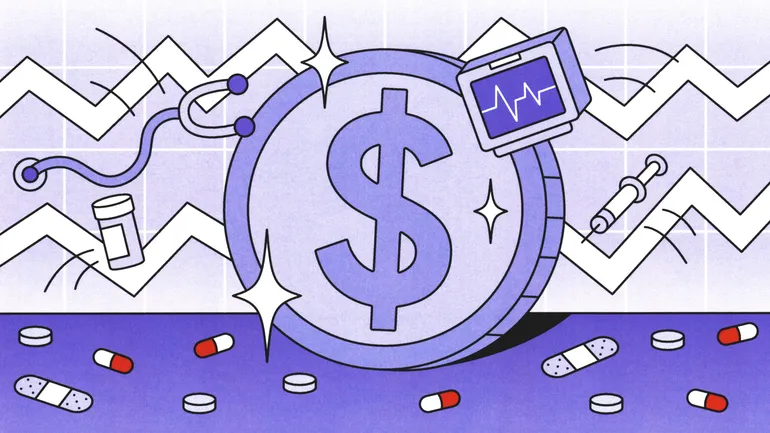Dive Brief:
- Community Health Systems’ losses widened in 2024 to $516 million, up from $133 million in 2023, as the health system struggled with cost pressures, including rising medical specialist fees and payer denials.
- The system also attributed its losses to divestitures. CHS has been chasing at least $1 billion in profits from hospital sales as it looks to pay down debt, but sales have dinged the provider’s operating income.
- This year, CHS expects to take in between $12.2 billion and $12.6 billion in revenue, with adjusted earnings before interest, taxes, depreciation and amortization ranging from $1.5 billion to $1.6 billion. The health system could upwardly revise its EBITDA projections if state supplemental payment programs are approved as planned, CHS CFO Kevin Hammons told investors Wednesday morning.
Dive Insight:
Compared to its peers — Universal Health Services, Tenet Healthcare and HCA Healthcare — CHS has struggled to rebound financially since the COVID-19 pandemic. The health system’s assets are in smaller markets with less growth prospects. Additionally, CHS carries a high level of debt and has been unable to generate a positive cash flow, despite raising volumes significantly, according to analysis from credit rating agency Fitch Ratings.
The health system ended 2024 with $11.4 billion in long-term debt and $2.3 billion in current liabilities, while only carrying 37 days of cash and cash equivalents — the funds companies typically rely on to meet short-term obligations.
CHS has been trimming its portfolio for years as it struggles to deleverage its portfolio and generate liquidity.
In 2024, the health system sold a hospital in Cleveland, Tennessee to Hamilton Health Care System for approximately $160 million and later sold two North Carolina-based hospitals to Iredell Health System.
CHS plans to finalize sales of ShorePoint Health in Florida — which remains closed post-Hurricane Milton — and Lake Norman Regional Medical Center in North Carolina in 2025. The sales should generate nearly $550 million in gross proceeds for CHS, Hammons said.
However, as CHS cuts back its hospital portfolio, it’s seen a corresponding slide in admissions. During the fourth quarter, overall admissions were down 5.6% year over year.
During Wednesday’s call, analysts expressed some concerns about CHS’ long-term strategy, which may prioritize outpatient encounters over more lucrative high acuity patients.
CEO Tim Hingtgen threw cold water on those concerns. Although CHS’ portfolio is smaller than it once was, it is “generating roughly… similar amount of net revenue as three or four years ago. So we know that our investments are yielding the intended outcomes, caring for more patients and driving that type of growth,” he said on the earnings call.
CHS said it will pay close attention to containing costs this year.
The system continued to call out claims denials as a pain point, with Hammons noting initial claims denials have doubled year over year. Hammons said CHS is enhancing its capabilities to address appeals and that 25% of denials are successfully appealed.
Medical specialist fees have somewhat stabilized since the third quarter, according to Hingtgen. However, medical specialist fees still climbed 12% during the fourth quarter, totaling $170 million. For the full year, the fees ran CHS $640 million, up 10.9% on a same-store basis compared to 2023. The company said it is investing in bringing pricey anesthesiology services in-house to manage rising costs.
CHS also continues to feel one-time cost impacts from Hurricane Milton, which hit Florida in October. The health system recorded a $10 million impact from the hurricane during the fourth quarter, and said its hospital ShorePoint remains shut down during the first quarter of 2025.
Looking to 2025, CHS plans to continue investing in outpatient and post-acute care, executives said. CHS plans to spend between $350 million to $400 million on capital expenditures, with a focus on expanding its ambulatory surgery center and freestanding emergency department offerings, as well as improving capacity management, Hammons said.
Last year, CHS purchased 10 urgent care clinics in Tucson, Arizona and opened two free-standing emergency rooms. CHS ended 2024 with 47 ambulatory surgery centers.
Executives expressed some optimism that they could have a stronger 2025 than initial guidance suggests if state Medicaid supplemental payment programs in Tennessee and New Mexico are approved as anticipated.
The programs provide a significant revenue boost for providers by offering funds to help cover the shortfall between Medicaid reimbursement rates and the actual cost of care for providers.
“Our guidance does not include directed payment program reimbursement for New Mexico or Tennessee, as those programs have not yet been approved by CMS for 2025,” Hammons said. “If those programs get approved for 2025, we believe, it will add an incremental $100 million to $125 million to our annual guided run rate of EBITDA.”
Executives were near certain the programs would be approved. Hammons called New Mexico “basically a renewal,” and said he believed both programs will “continue relatively in their current form going forward.”
In an analyst note published Wednesday, Brian Tanquilut from Jefferies agreed the programs were likely to go into effect.








